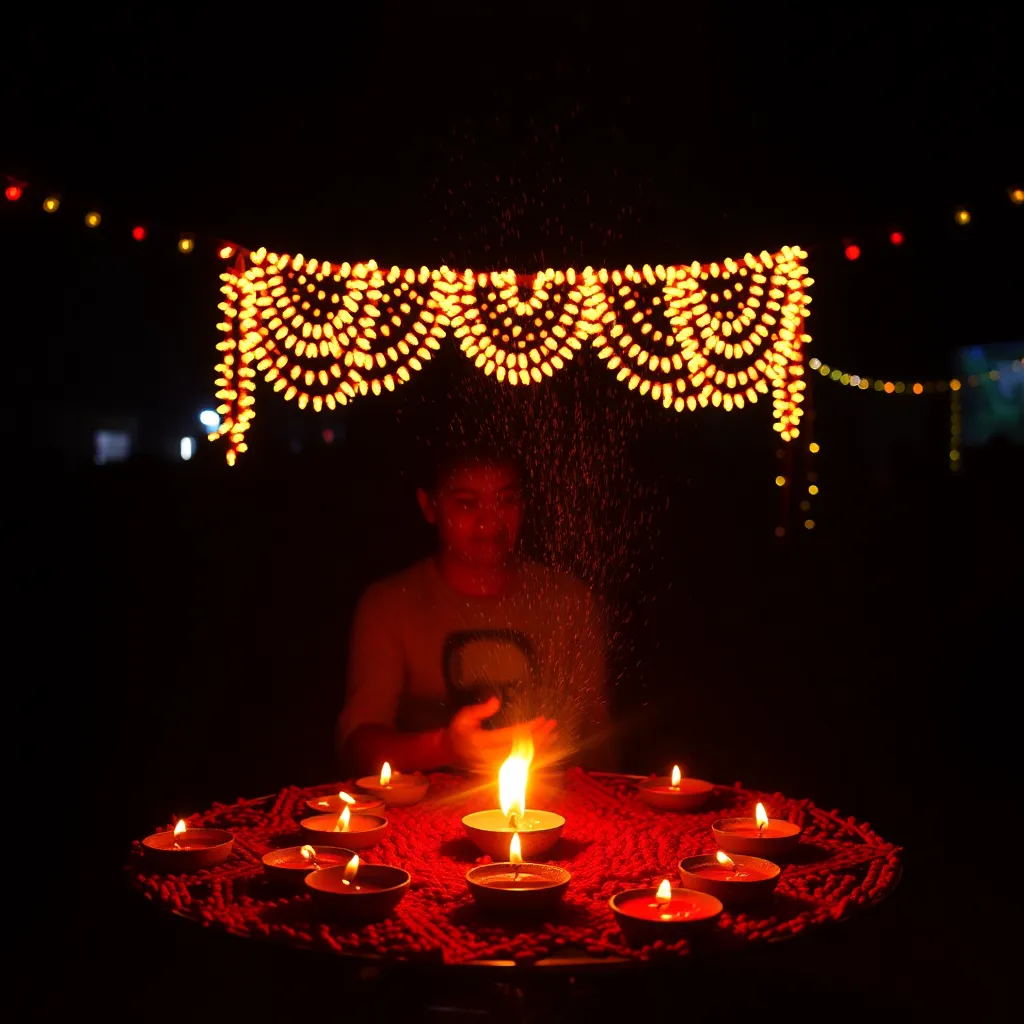
27-Oct-2024 , Updated on 10/27/2024 10:25:37 PM
Why do Indians celebrate Diwali? Story of Hindutva
Diwali, or ‘Festival of Lights,’ is one of the major and most popular festivals in India. However, what makes Diwali so important to the Indian context and, in general, meaningful in the Hindutva concept?
Diwali stands for success, prosperity, and well-being for everyone.
The significance of Diwali:
A Victory of Good Over Evil However, there is more than one tale of Diwali, the second most popular story being the victory of Lord Rama. It took fourteen years of travelling and adventures to rescue Sita from the Ravana, and then he returned to rule his dominion, Ayodhya.
The arrival of Ram was expressed in huge rejoicing; houses of Ayodhya were illuminated using oil lamps, or ‘diyas’ to show the path for the returning king. It’s not just the victory of a certain battle but the message of goodness.
Diwali teaches every Indian that the good will always win where there is kindness, loyalty, and moral right over adversity. It is a symbol of hope, an affirmation of the concept that no matter what and who, black will triumph over white.
So. What actually is Diwali? How is this Indian festival celebrated? They particularly note that Diwali is a festival that’s big, happy, and communal. The pre-arrangement for Diwali starts days earlier from the day of Diwali, as people clean their houses and women draw ornaments like Rangolis, and flower petals, and place Diyas. The lighting of these lamps is intended to mean that the person has victory over the darkness in a said life and ushers the light into that life.
The celebration extends over five days.
Dhanteras: The first day is for having wealth and prosperity, and on this day people buy new belongings such as gold or kitchen utensils to help them attract good luck.
Naraka Chaturdashi: On this day it is also celebrated because Lord Krishna defeated Narakasura, a demon. It also comes with washing in water to counter the ill fate; people bathe on this day.
Diwali Night: The main event is when houses are cleaned and lighted with oil lamps, Laxmi puja is done, everyone has their bountiful meal, and then there are firecrackers.
Govardhan Puja: This day has been set to commemorate Lord Krishna—how he shielded his devotees from the rage of Indra by lifting the mountain—mount Govardhan.
Bhai Dooj: The last day is reserved for brother and sister’s relationship, and siblings meet up and pray for each other’s prosperity.
All these days have their own meaning and add to the embedded meanings of Diwali.

Diwali reflects the essential meaning of Hindutva and conveys the specificity of Vedic civilisation inherent in Hindus. This is not only a religious holiday but also a declaration of the original Hindu culture and heritage. Diwali best represents the spirit of the Hindutva because it includes resistance, the spirit, moral power, and the feeling of belonging. It is a time when Indians are proud together in terms of culture, family, and the stories that are considered the backbone of Indian tradition.
In addition to doing this, it emphasises Hindutva, which serves to remind people of the close ties between Hinduism and Indian culture. Diwali therefore is essentially a Hindu festival; nevertheless, it has been embraced and celebrated not only as a religious festival. People of all religions come forward to join it, and the festival is genuinely Indian and unites the nation.
It was a festival of celebration for a life of peace and prosperity.
India's belief in the victory of good over evil, light over darkness, and unity over individualism is symbolised by this festival, which is more significant than Diwali. It passes on the atmosphere of Dussehra, which includes wishing prosperity and happiness thereafter and forgetting grievances.
Diwali is not only a festival; it is a symbol that reminds us about what culture India has basically. You have a festival that is in a way realistic with aspects like money, success, and family or the abstract like love, generosity, and togetherness. Being associated with Hindutva, Diwali’s story calls every person in India to accept such values in his or her life and continue the tradition of light, benevolence, and optimism.
Each year when India gets lit up in Diwali, it does not only narrate the story of legendary battles but of a reborn nation founded on the principles of strength, unity, and cultural pride.

Student
hey there! i am a student currently pursuing my bachelors with a keen interest in writing., I am fueled by a deep love for storytelling and a flair for creating captivating narratives. Armed with a passion for language and a keen eye for detail, I strive to craft compelling copy that leaves a lasting impact.
Join Our Newsletter
Subscribe to our newsletter to receive emails about new views posts, releases and updates.
Copyright 2010 - 2026 MindStick Software Pvt. Ltd. All Rights Reserved Privacy Policy | Terms & Conditions | Cookie Policy